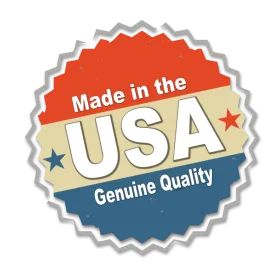On June 22, 2020, the Federal Trade Commission issues a staff report (the “Staff Report”) on a public FTC workshop on Made in USA claims (the “Workshop”) that was held in September 2019, and a notice of proposed rulemaking for a Made in USA Labeling Rule (proposed Rule).
The Workshop was held to enhance understanding of consumer perception of “Made in the USA” and other U.S.-origin claims, and to consider whether the FTC can improve its “Made in USA” enforcement program.
The Commission has not issued regulations specifically covering “Made in USA” and other U.S.-origin claims. However, its 1997 Enforcement Policy Statement On U.S. Origin Claims provides guidance on how the FTC applies Section 5 of the FTC Act to the use of such claims in advertising and labeling. The Policy Statement states, amongst other things, that when a marketer makes an unqualified “Made in USA” claim, the marketer should, at the time of the representation, have a reasonable basis for asserting that “all or virtually all” of the product is, in fact, made in the United States. The Policy Statement also provides guidance to marketers on how to make appropriately qualified claims.
The Workshop summarized research on consumer perception of U.S.-origin claims, and had panels to discuss policy issues and appropriate enforcement measures and remedies. The FTC staff sought public comment on three general topics: (i) consumer perception of MUSA claims; (ii) concerns about the FTC’s current enforcement approach; and (iii) potential changes to the FTC’s enforcement strategy.
There has been a lot of recent discussion that if the FTC issues a rule regarding “Made in USA” claims, violators could face civil penalties in addition to equitable relief. In awarding civil penalties, courts consider the defendant’s degree of culpability, any history of prior misconduct, ability to pay, effect on ability to continue doing business, and such other matters as justice may require. Given these factors, if the FTC should seek civil penalties against companies that make deceptive “Made in USA” claims in violation of a rule, issues were raised regarding how the FTC should calculate the penalty amount it seeks to impose.
The FTC presently addressed deceptive U.S-origin claims by U.S. firms through its ongoing enforcement program. However, overseas firms selling directly to U.S. consumers through online sales platforms may also make deceptive U.S-origin claims. Given the limits imposed by the Communications Decency Act, 47 U.S.C. 230(c)(1), as well as the limits on the FTC’s jurisdiction and resources, the steps should the agency take to address deceptive U.S.-origin claims made to U.S. consumers on third-party platforms by firms with no U.S. presence has also been a hot discussion topic.
The Staff Report follows-up on the issues raised at the Workshop which sought to enhance the agency’s understanding of consumer perception of Made in USA claims and consider whether the Made in USA enforcement program can be improved. According to the Staff Report, only one panelist provided survey evidence on how consumers understand Made in USA claims. Citing a 2013 study, the panelist noted that almost three in five Americans agree that “Made in America” means that all parts of a product, including any natural resources it contains, originated in the United States, and a third of consumers believe that 100 percent of a product must originate in a country for that product to be called “made” in that country.
The Staff Report states that this evidence supports the guidance in the FTC’s Enforcement Policy Statement on U.S. Origin Claims that at least a significant minority of consumers are likely to be deceived by an unqualified Made in USA claim for a product incorporating more than a trivial amount of foreign content.
The FTC currently focuses litigation efforts on egregious offenders, while aggressively working to prevent Made in USA misrepresentations. Several commenters and panelists argued that the FTC should continue to bring enforcement actions under Section 5 of the FTC Act, but should seek additional remedies in court actions, including monetary relief, admissions of liability, notice to consumers, naming individuals as defendants, or even jail time. These stakeholders argued that the Commission’s approach has not been strict enough to deter deceptive claims.
The FTC has also issues a notice of proposed rulemaking for a Made in USA Labeling Rule. The proposed Rule will apply to product labels making Made in USA and other unqualified U.S.-origin claims. The proposed Rule incorporates guidance set forth in the Commission’s previous Decisions and Orders and its 1997 Policy Statement.
The proposed Rule will prohibit marketers from including unqualified Made in USA claims on labels unless: (i) final assembly or processing of the product occurs in the United States; (ii) all significant processing that goes into the product occurs in the United States; and (iii) all or virtually all ingredients or components of the product are made and sourced in the United States.
The proposed Rule also covers labels making unqualified Made in USA claims appearing in mail order catalogs or mail order advertising. The proposed Rule does not supersede, alter, or affect any other federal or state statute or regulation relating to country-of-origin labels, and will make civil penalties available to deter violations.
“Whether a product is actually ‘Made in the USA’ is an important issue for consumers, manufacturers, retailers, and American workers,” said FTC attorney Andrew Smith, Director of the FTC’s Bureau of Consumer Protection. “We welcome comments from all stakeholders to inform our rulemaking effort.”
Commissioner Noah Joshua Phillips issued a dissenting statement. Commissioner Rohit Chopra issued a separate statement, as did Commissioner Christine S. Wilson.
The proposed Rule will be published in the Federal Register shortly.




 />i
/>i

